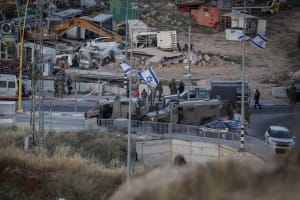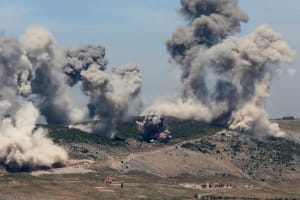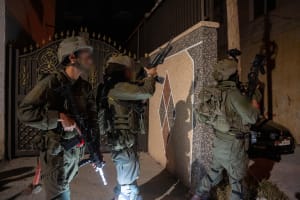Not being receptive to Netanyahu's 'Day After' plan, US insists Palestinian Authority to be involved in post-war Gaza

The White House gave a cool reception to Israeli Prime Minister Benjamin Netanyahu’s post-war plan for the Gaza Strip.
While Washington and Jerusalem both desire a future Gaza without the Hamas terror organization, there are disagreements concerning who should be in charge of Gaza once the war is over.
Netanyahu has emphasized that neither Hamas nor the Fatah-ruled Palestinian Authority (PA) should be allowed to run Gaza after the war since both entities embrace terrorism and oppose Israel's existence.
The Netanyahu post-war Gaza plan, therefore, emphasizes the enclave should eventually be run by local individuals with “administrative experience” who do not have any ties to “countries or entities that support terrorism.”
By contrast, the Biden administration and much of the international community insist that the PA is a peace partner and should ultimately be permitted to establish a state in Gaza and the West Bank.
Addressing journalists on Friday, U.S. National Security Council Spokesman John Kirby noted Washington’s position that “the Palestinian people should have a voice and a vote… through a revitalized Palestinian Authority.”
Kirby, in effect, said that the Biden administration is ready to see Hamas eliminated from the picture but does not want Israel to rule the Gaza Strip or reduce its size.
According to Kirby, the U.S. does not “believe in a reduction of the size of Gaza… we don’t want to see any forcible displacement of Palestinians outside Gaza and, of course, we don’t want to see Gaza dominated or ruled or governed over by Hamas.”
Israel has stressed that it does not want to govern the approximately two million Gazan residents, however, Jerusalem has indicated that a long-term IDF presence in parts of Gaza will be necessary to restore and maintain security for Israel.
The Netanyahu post-war Gaza plan stresses “indefinite freedom” for the Israeli military to operate within the enclave to prevent future massacres like the one on Oct. 7. Many military experts have concluded that Hamas was able to turn Gaza into a highly militarized terrorist base due to the lack of IDF military presence in Gaza for nearly two decades.
While Washington has not defined a “revitalized Palestinian Authority” it has hinted it wants the PA regime, led by Fatah leader Mahmoud Abbas, to embrace peace with Israel, and assume responsibility for security and socio-economic development for its own population.
Some argue that the PA has rejected peace with Israel in the past and is unable to deliver a viable future for its own population due to corruption.
According to a November poll conducted by the Arab World for Research and Development (AWRAD), over 87% of the Arab population in Gaza and the West Bank have a negative view of the PA, while 75% support Hamas and the terror group's Oct. 7 massacre.
Meanwhile, the PA rejected Netanyahu's Gaza proposal as “a plan to prolong the genocide against our people and an attempt to gain more time to implement the displacement plans,” recycling the false “genocide” charges leveled against the Jewish state by South Africa in the World Court.
PA Prime Minister Mohammad Shtayyeh recently said that the international community should stop focusing the massacres carrying out by Hamas.
“One should not continue focusing on October 7,” Shtayyeh stated and said the PA was ready to form a unity government with Hamas leadership.

The All Israel News Staff is a team of journalists in Israel.













